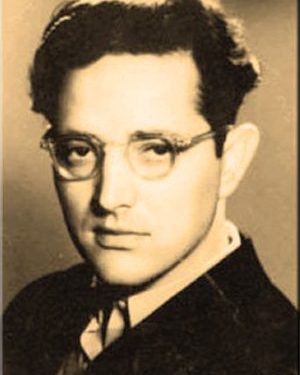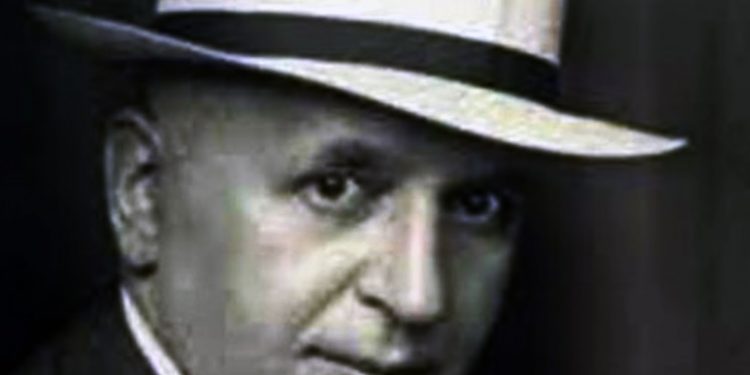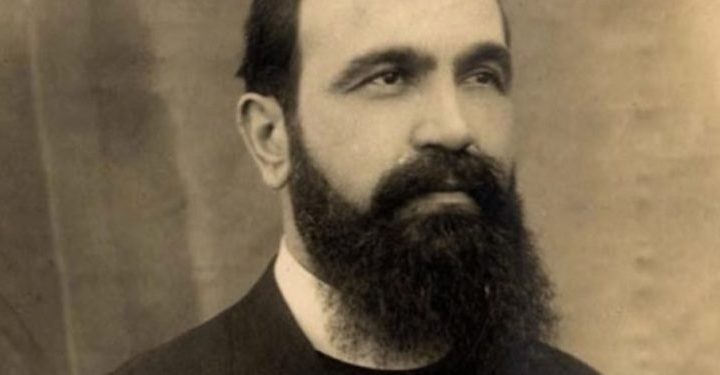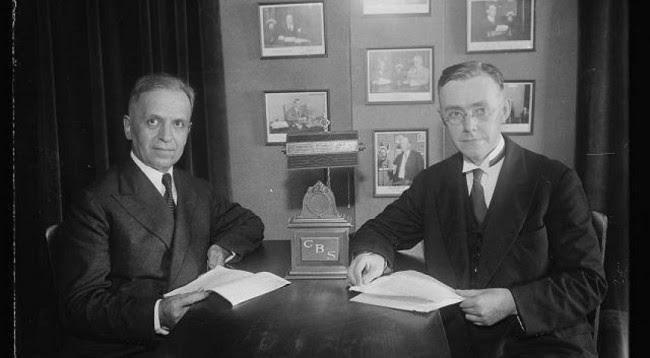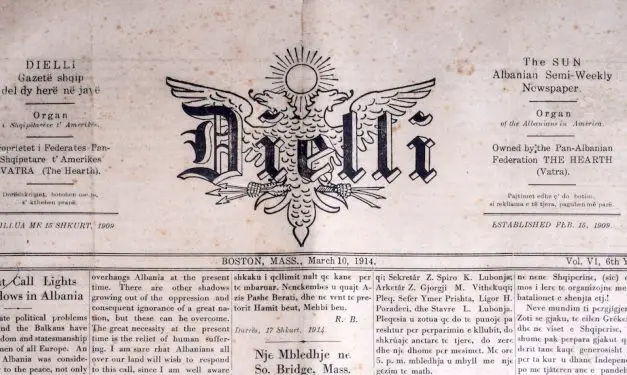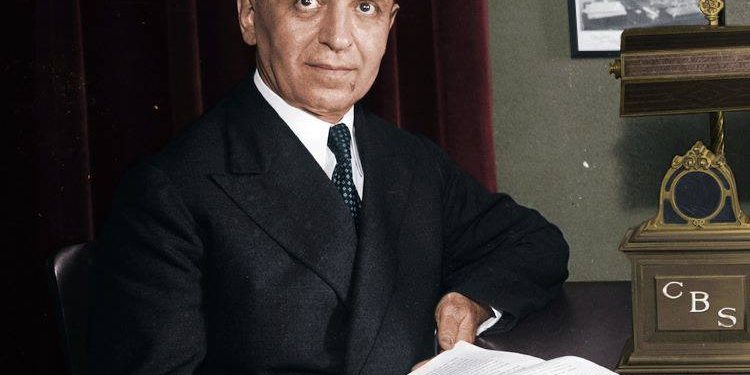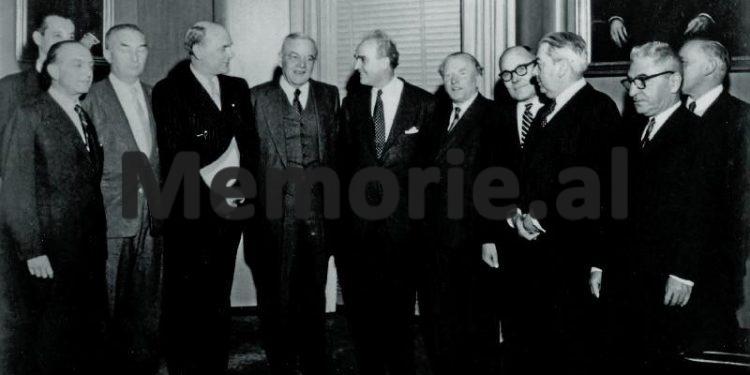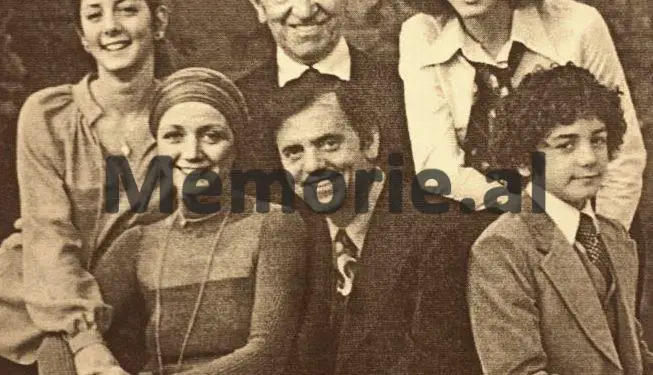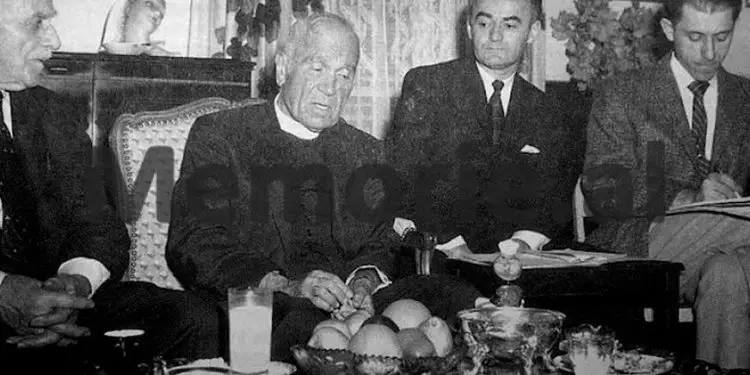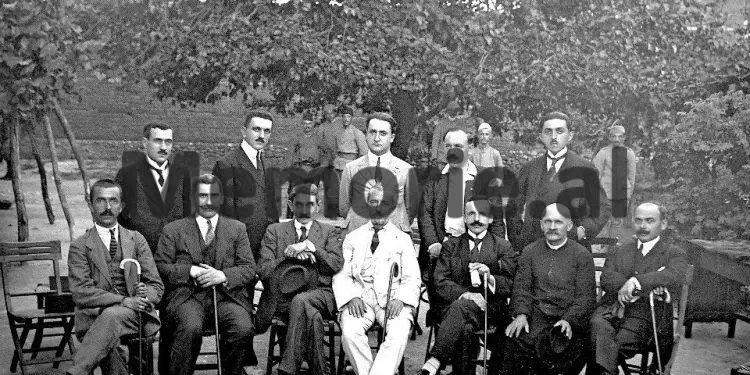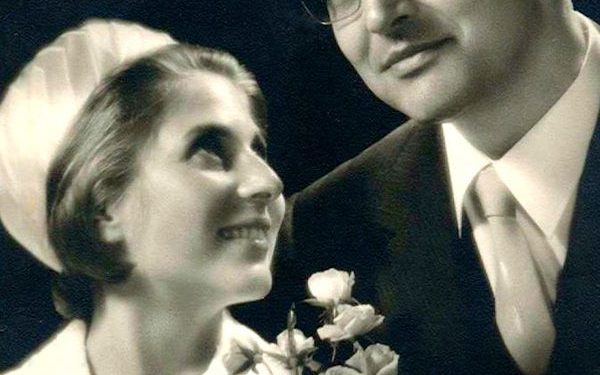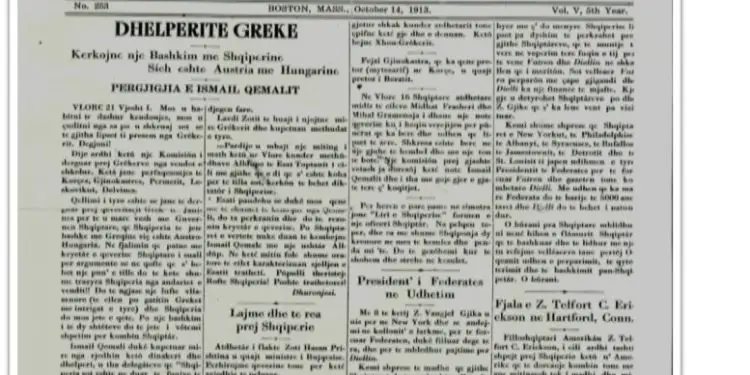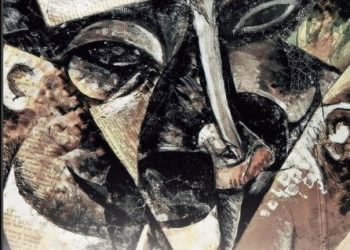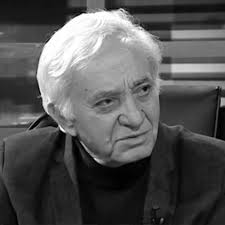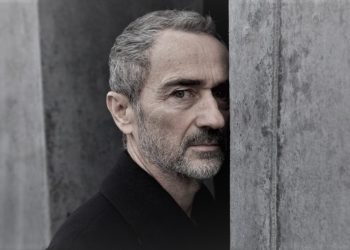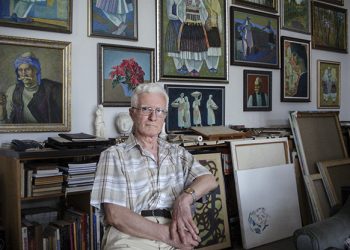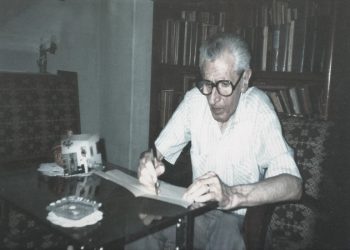Dashnor Kaloçi
Memorie.al publishes two unknown studies dedicated to two of the most prominent personalities of Albanian politics and literature, Fan Noli and Faik Konica, referred to in 1969 in New York, on the occasion of the celebration of the 60th anniversary of the newspaper “Dielli”. The life and creativity of two colossi of Albanian politics and letters, from the point of view of the former Chairman of the Committee “Free Albania”, Hasan Dosti, one of the most prominent politicians and researchers of history of the Albanian diaspora, and Prof. Martin Camaj, the famous poet and prose writer who for years headed the Department of Albanology at the University of Munich, as well as the magazine “Signs” in Rome.
The life, work and creativity of Fan Noli and Faik Konica, rightly considered as two of the greatest colossi of Albanian literature, for several decades have been the subject of books with various studies, analyzes and critiques, both by Albanian authors and and by foreign scholars who have dealt mainly with albanology. Unlike Noli, whose work did not have many obstacles to communicate with his compatriots in his home country, for reasons that are already known, Konica has been almost unknown in his homeland for half a century. . But their work and creativity have not been unknown to the Albanian diaspora, mainly the political one of the USA, which has reminded them from time to time on the various anniversaries of their birthdays, in the celebrations of the “Vatra” society and the organ of her, the newspaper “Dielli”, or in the celebrations of the national holidays of Albania. In this context, Memorie.al is publishing for readers two unknown studies and parts of the creativity of two great colossi of Albanian letters, seen from the point of view of Hasan Dosti, former Chairman of the Committee “Free Albania”, one of the politicians and history scholars, most prominent in the Albanian diaspora, as well as Prof. Martin Camaj, the famous poet and prose writer who for years directed the magazine “Shenjzat” and the Department of Albanology at the University of Munich. These excerpts from their papers, we are giving in that language as they were published at that time by the Albanian diaspora in the US, where only subtitles are editorial, but integrally detached from their studies.
Hasan Dosti: Noli, a central figure in modern history
Fan Noli has been a central figure in the recent history of our country. This man symbolizes the synthesis of the virtues of the Arbnore race. Numerous and invaluable are the works he has dedicated to the Homeland, in the field of culture and education of the people. Yes, above all, stands the undertaking of the establishment of the Autocephalous Church of Albania, detached from the beacon of the patriarchy of Fanar, which has been the arcane center of denial of the rights of our nationality. Our great Fan Noli has been the patriot who has thought, judged and decided that the autocephaly of the national church is the complementary act of independence and sovereignty of the State. And so the great man of the cause of autocephaly, has devoted to him the heat of patriotism, spiritual energies, wonderful intelligence, and the broad theological and philosophical culture. On the occasion of the commemoration of this high prelate, our thought and emotion is guided by the martyrdom of three other prelates of the Albanian Orthodox Church, I am talking about Pope Christos Negovani, Pope Stathi Melanin-priest and poet, and Pope Llambri Ballamaçi. Although educated in the Greek school, and handed over by priests by Greek bishops, this was snatched away by the mysticism of the Albanian race and blood. As sons of the people, they are committed to the issue of national political education. Thus they became the object of the curses and persecutions of Phanar and were finally martyred by the Greek Andarts… ”
Faik and Noli, excellent binomial
A lot of energy has been poured into the establishment of the organization “Vatra”; Many theories have been fabricated by Albanian men of the dead generation, who now rest in the other world, in the eternal world. Among these men shines the binomial: Styllian Syziu and Faik Shishko Konica. Faik according to a tradition, from the paternal line comes from the Karamurat tribe of Leskovik. In Konica it was named Shishko. On the mother’s side is the lab, has the surname Delvina. Our Faik, educated mainly in the French school, where he has absorbed classical humanities and endowed with the masculine energy of the race, has been praised Thyrseu Spartak of the Albanians of his generation. Fan Noli comes from parents who left the village of Qytezë in Kolonjë, to settle in eastern Thrace, where they founded a new village called Qytezë, which in Turkish is called Ibriktepe. Noli’s family name is Syziu. The fanatical priests, who had as their mission entrusted by the Patriarch of Fanari the Hellenization of all Orthodox, in the church records, have translated the name Syziu into Greek Mavromati, a name which is recorded in the acts and diplomas of Fan Noli.
The school where Noli was educated
Thrace (As a province close to Istanbul and the tradition of the Metropolitan Archdiocese of Heraklion, from which the Patriarchs receive the patrician, a symbol which gives them the ability to consecrate, and to crown Emperors in the Basilica of Hagia Sophia, erected in the city of Constantine , by Justinian), has not ceased to be under the jurisdiction of Phanar. The Greek language and culture have been very widespread. Greece has been the language of liturgy and preaching in the churches of the Bulgarian-inhabited countries, even after the founding of the Bulgarian Exarchate in 1870-1872. The Greek Gymnasium of Adrianople, where Fan Noli received his secondary education was one of the most organized; was equated with that of Megali tu Jesus of Istanbul and with Zosimena of Ioannina. Fan Noli has been one of the creatures that nature endows with providential qualities. Born in the New Town, inspired by the Naiada nymphs of the Hebros River of mythology, he became the belleman Orpheus of Thrace. At the same time, the wind waves echoed the oreade nymphs of the Boion (Gramos) mountain of the Illyrian town. This was a heavenly music, which introduced the mystical spirit of Albanian Patriotism. Very rich are the services and theories that this man of intelligent, lively and brave race of Cologne, has dedicated to the Homeland of Skanderbeg. But above all stands His ecclesiastical mission. We know the circumstances in which Fan Noli was previously canonically ordained a priest and founded, in Boston, the church of St. George, dedicated to the saint, patron saint of Albania. As bishop, Fan Noli was elected in 1918 by the clergy of the people, according to the rules of the Church tradition, since the apostolic period, as the Hierarchs of the Byzantine diocese-elevated to the rank of Patriarch-syfraagans of Thracian Heraclius were elected. The Patriarchate of Fanar does not recognize the election as canonical. But the voice of the Bosphorus is not heard in Boston, not only by Fan Noli, but also by the Orthodox Albanians of America. Stilian was a man who had learned Aristotelian philosophy in Adrianople, in Athens and Harvard, but the members of St. George, were modest people, out of the ranks of the people; some with a primary education acquired in Greek-language schools. Even these immigrants were baptized with Ajyon Myron-holy oil-sent from Istanbul. Holy oil has the virtues of the mystery of the Church; but in the administration of this mystery, the priest Fanarit, tried to introduce the feelings of Hellenism even among those who were not Hellenes. With all this, the modest people we are talking about condemned the work of Hellenism developed by Phanar. This is a great merit, evidence of the orthodox patriotism of that time, the virtue of race, the glory of the nation. Grateful homeland. History will testify.
Noli was the first to preach the Albanian Mass in Vlora
Fan Noli, elected deputy in the First Chamber of Albania, in the spring of 1921, descends to Vlora, to the ideal Bethlehem of Albania, to the birthplace of Saint Donat, the Vlora of miracles. Here, the bishop who had not declared himself canonical, followed by a long line of young Orthodox boys, following the example of those of America, opens the gates of St. Vlach Church and preaches in Albanian. It is the first time that the Albanian language is celebrated in Albania. In August 1922, Bishop Syziu organized the Congress of Berat, which solemnly proclaimed the National Autocephalous Church. To be placed in a stronger legal position, Fan Noli canonically surrenders as Bishop of Korça. It is not the case here to follow, at all stages, the activity that has taken place for the canonical consecration of the Autocephalous Church. For the realization of this program, it was necessary to work methodically even after 1924. With the goodwill of the Orthodox patriots, the goal was finally achieved. The Albanian Autocephalous Church was consecrated on April 12, 1937 with Tom signed by the 243rd Patriarch Benjamin of Fanar. The establishment of the Autocephalous Orthodox Church in the Balkans is an act that proves the prestige of the Nation and complements the concept of political sovereignty of the State. Many men are dedicated to the realism of this ideal, but above all the face of Colonel Stylian Syziu shines, the metamorphosed Apostolic Layman of the Albanian Orthodox Church. The enlightened Luigj Gurakuqi, has made his word that Christ said to St. Peter: “You are the stone on which I will build my church”. Gurakuqi addressed to Fan Noli, rightly said: “You are the stone on which the Albanian Orthodox Church will be built”.
Martin Camaj: The function of the language of Noli and Konica
Honest listeners, I am glad that I am being given the opportunity to express some thoughts on this topic in relation to an extremely important issue which was faced in a special way by two spiritual leaders of Vatra – two of the greatest writers of Albanian literature. -Noli and Konica. It is not common that even in today’s literary or linguistic-stylistic studies, Noli and Konica are placed next to each other, and not because we are dealing with two different temperaments, with two writers, with two different working methods or with incomprehensible literary purposes — which for many reasons do not correspond to the truth (here we can also understand the pragmatic reasons) – but we are presented to separate these two names more for reasons of cut doctrinal prejudices. In our time, everywhere in the world, judgments are often made about this or that artist according to whim or interest, without certain criteria, behind which are hidden the short-lived goals of a moment, a group or a system. For example, the literary production and the attitudes of the writer’s causes are confused or put in a plan, in other words, the self or the biography is confused with the art of the self, and the function of the production or the service of his work for the overall development of the literature of a nation, functions and services these often times unforeseen by the writer himself. In this few-page statement, I would like to point out in general terms, a service that these two thinkers rendered to Albanian culture. Noli, who lived longer, experienced to some extent the stages of influence of his work, regardless of his pessimism or skepticism before the facts, at least for us as researchers are somewhat irrelevant. Konica, on the other hand, was unlucky as a writer and it is not known whether he was aware of the value of his writings. And to die, surprisingly, the circumstances have not yet come to recognize this function. The younger generations do not know it and have no way of knowing it because they cannot study it directly. But both of these writers, from the beginning of their activity as writers, had a common problem to solve: in what language of Albanian writing would they be brought to the Albanian world to be able to clarify their thoughts? The writers of the North, based in Shkodra, as followers of a long and uninterrupted tradition, did not have this care because they claimed that the reader should also know this tradition: therefore the point from which Noli and Konica left in terms of language was different, tue since they were found in circumstances quite different from their Northern compatriots. Both were aware that they were operating at a time when there was still no stable orthography of the Albanian language, when gega and toska, each speaking their own dialect, found considerable difficulty in understanding each other in joint work, on the streets and in cafes. . I believe that the language problem for both Noli and Konica, especially here in America was difficult because they would be written to be understood by the Albanian community, coming from different regions of Albania. And it is surprising how Noli and Konica, without being linguists, i.e. language trackers with professional methods, saw many issues quite clearly. As a main principle they had simple expressions, always keeping in mind who they were written for. Konica advertises on the top of the book In the shade of dates: “A book to pass the time and to learn the writing of the language. A book for women and men, for the little ones and for the big ones “. The point is clear: he treats everyone because he is convinced that the language used in this book is understandable to everyone. A remark deserves the definition: “language writing”, which is very different from the “writing language” that we hear today. Konica starts from the formal external point of view d.m.th. presentation of written language. After the Albanian dinka foreign language, because he learned it from the mouth of his mother: then the point was that he knew how to describe and understand it. Asgjamangut what Konica ordered is not even a simple thing today: modern linguistics deals with similar problems today. The first problem, the issue of writing Albanian, has always killed Konica’s mind, as evidenced by his articles in the temporary “Albania”, which made even the greatest foreign albanologists of the time interested. But Konica knows that the task of writers is the development and elaboration of the Albanian language. This care is clearly expressed in the preface of “In the shade of dates”: “The Albanian language as old as Greek and Latin is far behind its friends, it needs to develop and move forward to make up for lost time. We need two kinds of works: original things, invented by real writers, and translations. At one point Noli and Konica seem to have completely agreed on the elaboration of the written language: for formation translations play a major role in shaping literary or written language. As far as I know, Noli did not formulate his views in a separate study: he considered this issue to be a personal matter on which there was no need to be informed by the world or the polemic. In this case it does not mean that they did not have certain principles to which experience itself had suggested. Noli especially spends his experience in translations and precisely in that stylistic-linguistic experience in the Albanianization of the sacred script of other liturgical works, which contain the various linguistic registers from all the activities of the earthly and spiritual life. I believe I am not mistaken in making this warning; The detailed studies that will one day be undertaken on Noli’s language will reveal his dependence on Kristoforidhi’s translations, and that his real teacher was the great Elbasan, the true approximator of the two main dialects of Albanian. Noli, like many other artists of the Albanian word, never achieved the deep knowledge of Albanian that Kristoforidhi had, but he simplified this language, to shoot it from the intentions of idiomatic words and forms, so that the original works and translations of Noli was widely understood by the general public. As an artist then Kristoforidhi was not, Noli gave life and artistic value to the language used as a means of expression. It seems to me that he is the first Albanian writer to move away from idiomatic expressions, and therefore from the word order and archaic and sub-dialectal constructs of Albanian, a path that was later followed by journalists and writers of exponential prose. Therefore, the influence he exercised in Albania, right after the war and later Noli, the translator and prose writer, is quite understandable.
Exclusion of Konica from literature by the communists
After the war in our country Konica was officially excluded from literature and consequently his writings as stylistic language models. We can neither affirm nor deny that indirectly, Konica influenced or did not influence the linguistic development of post-war Albania: even at this point, the answer will be given by future studies. Sadly, Konica’s writings, as has often been pointed out by various scholars of our literature, are scattered on all fours among magazines and newspapers, very rare today. It is impossible, therefore, to categorize these writings and the beginning of Konica’s development as a writer. A reprint of Konica with a critical eye (note) would be more than necessary. But it is known from experience that the life of a writer does not depend on the most luxurious publication, nor on the most chosen words of literary criticism, but on the interest of contemporaries and generations from reading and enjoying it by an audience. After the conjecture and disinterest of the Albanian readers, he paralyzed the pen of this excellent Albanian stylist. Noli and Fishta, being members of complex religious organizations, found it easier to hear and read by a wide audience. In this encouraging circumstance, they gave a series of works which were also republished. Konica experienced or felt more than any other of our writers the carelessness of the reader and as you know this behavior of the compatriots infuriated him so much that he reacted in writing that he was angry and insulted by a man. But it should not be forgotten that he understood the situation of the Albanian reader and in another place he ordered the Albanian book, as a relaxation after the hard work of the day: “Even we, tired of the hardships of life, let us stay like the traveler of the Sahara in a oasis, and let us sing from the tales sung in the shade of dates ”.
The role of Noli and Konica as writers
Konica and Noli as writers played the role of pioneers. They were faced with problems and difficulties, as we had today to judge elementary, such as before the issues of writing Albanian and the formulation of a language understood by all, thus achieving at least in general lines the normalization of the Tosk Albanian dialect . From the time Noli and Konica operated to the present day, our language and culture in general has made great strides in its development. Konica was not a poet in the classical sense of the word, but only a prose writer and as such a user of many linguistic registers. Konica’s competence does not peak from the sky, it is the result of some of his personal qualities. Tue relied on his writings, we discover the formation of man in some advanced European languages, which he was well acquainted with. From this derives the logical order of thoughts, therefore the syntax of the Albanian language in the works of Konica is flat, with a sequence of words and sentences architecturally perfect. It is interesting that this as a fast man he was, loses this balance and in linguistic terms, among some controversial writings. In the meantime, his nature comes to the fore, which also affects the character of the language: the other Albanian writers of his time, emotion, dispjeku, led them to the expression in poetic verses with content of longing, curse to elegy. On the contrary, Konica in such cases, seems to forget that it is written and intertwined with the linguistic inventory of the street man. It follows from this that Konica has learned Albanian from the mouth of the people, starting from the south to the north of Albania. An important component in Konica’s writings is style: in my opinion, he has not left any pages in the brightest and sweetest Tuscan prose that have not been achieved to date. This attractive taste and liveliness is given by the sweet, almost lyrical color of the native language that is acquired in childhood along with the first impressions that remain for our life. This lyrical linguistic clarity is also found in some popular lyrical songs of southern Albania and in some poetic parts of Lasgush Poradec.
Konica Noli writes mainly about the diaspora
Both Noli and Konica spent the best part of their lives outside Albania. Their writings were directed by compatriots in the diaspora, mainly Albanians in America. They always had in mind to be understood by all Albanians. They achieved this goal with a high percentage. The path they followed was this: they chose flat stylistic forms, deliberately departing from the numerous variants of the subdialectal lexicon of rare morphological forms. Days were probably held by some principles, the observance of which leads to a linguistic unification. This contribution is common to Noli and Konica./Memorie.al




